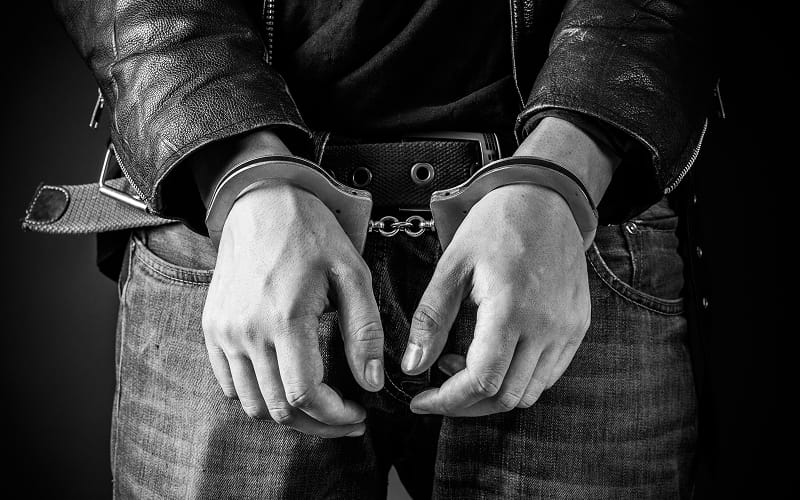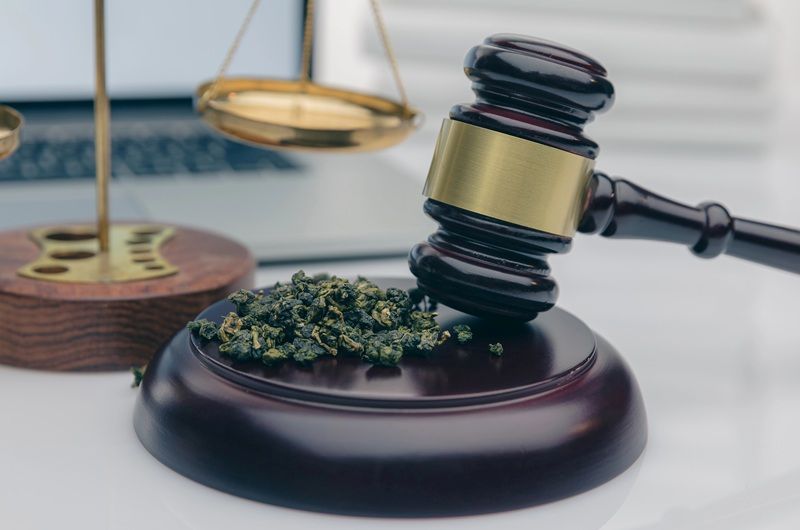When a juvenile is arrested in Fairfax County, Virginia, it’s a frightening experience for the child and their family. Parents often worry about legal consequences, the child’s future, and how to handle the situation. The juvenile justice system operates differently from the adult, focusing on rehabilitation rather than punishment.
This article explains what happens during a juvenile’s arrest. It covers each step, from the initial arrest to court proceedings, and discusses the impact of a juvenile record. It also introduces Fairfax County Criminal Attorneys and how it can help protect your child’s future.

Understanding Juvenile Delinquency In Virginia
In Virginia, a juvenile is any individual under 18. When minors break the law, their cases are handled in the juvenile justice system. Unlike the adult system, this process emphasizes rehabilitation and education to help young offenders make better choices and avoid future legal trouble.
Offenses that result in juvenile arrests include shoplifting, vandalism, underage drinking, trespassing, and minor drug possession. More serious crimes, such as assault or auto theft, can also result in juvenile charges. Depending on the severity of the offense, some cases result in diversion programs, while others may require formal court intervention.
Juvenile delinquency cases focus on intervention, rehabilitation, and prevention of future offenses. The legal process considers the child’s age, background, and the circumstances of the offense to determine an appropriate course of action, whether through diversion or formal legal proceedings.
Understanding juvenile delinquency is the first step in navigating the system. When a minor is accused of a crime, the arrest process begins. Knowing what happens during this stage can help families prepare and take necessary steps to protect their child’s rights.
The Juvenile Delinquency Arrest Process
When officers arrest a minor in Fairfax County, it differs from that of adults. The system prioritizes rehabilitation, but juveniles still face serious legal consequences. Understanding each step in the arrest process helps families prepare and take appropriate action to protect their child’s future.
Circumstances Leading To A Juvenile’s Arrest
A juvenile may be arrested if law enforcement has probable cause to believe they committed a delinquent act. It can happen if an officer witnesses the offense, receives credible reports, or gathers evidence linking the minor to a crime. Arrests can occur at home, school, or in public areas.
Taking A Juvenile Into Custody
Unlike adults, juveniles are not always formally arrested. Officers sometimes take the minor into custody for questioning or further investigation. Depending on the severity of the offense, the officer may decide to release the juvenile to their parents or proceed with formal charges.
Juvenile Rights During Arrest
Juveniles have specific legal protections during an arrest. They have the right to remain silent and must be informed of their rights. Law enforcement cannot interrogate a minor without a parent, guardian, or attorney present. These safeguards prevent unfair treatment and protect the child’s legal interests.
Police Officer’s Discretion In Handling Juvenile Cases
Law enforcement officers have discretion in handling juvenile cases. Depending on the circumstances, they may issue a warning, refer the juvenile to a diversion program, or proceed with formal charges. The goal is often to provide rehabilitation rather than immediate punishment.
Transporting A Juvenile After Arrest
If law enforcement officially arrests a juvenile, officers may transport them to a juvenile detention facility or police station. They are held separately from adults to ensure their safety. Officers notify the minor’s parents and determine the next steps based on legal guidelines.
After an arrest, the case moves to intake, where an officer assesses whether they should file charges. Some cases result in formal court proceedings, while others may be diverted to community-based programs.
Intake & Detention Procedures After The Arrest
After the juvenile arrest, an intake officer evaluates the case to determine the next steps. This assessment decides whether the minor should be formally charged, diverted to a program, or released to their parents. The goal is to handle cases fairly and appropriately based on circumstances.
Intake Officer’s Role In Assessing the Case
The intake officer reviews the details of the alleged offense, the juvenile’s prior record, and input from law enforcement. They consider whether court intervention or alternative options, like counseling or community service, would be more effective in addressing the behavior and preventing reoffending.
Criteria For Detention Or Release
Not all juveniles remain in detention after an arrest. The intake officer considers the severity of the offense, the minor’s history, and any risk they pose to themselves or the community. If the officer determines that the juveniles are low-risk, they are released to their parents under specific conditions.
Alternatives To Detention Available In Fairfax County
Fairfax County offers alternatives to detention, such as probation, electronic monitoring, and diversion programs. These programs focus on education, counseling, and rehabilitation rather than incarceration. The goal is to guide juveniles toward positive changes while keeping them accountable for their actions.
The intake process plays a significant role in a juvenile case. Whether a minor is detained or released, the next step often involves court proceedings. Understanding how the legal system handles juvenile cases is essential for families preparing for the legal process.
Juvenile & Domestic Relations District Court Proceedings
If a juvenile case proceeds to court, it is handled in the Juvenile and Domestic Relations District Court. This court focuses on rehabilitation rather than punishment, working to provide fair resolutions that consider the child’s future and the community’s needs.
The Courts’ Jurisdiction
Juvenile and Domestic Relations District Court handles cases involving minors accused of delinquent acts and matters related to family law. Judges take a rehabilitative approach, offering alternative sentencing options like counseling, probation, or diversion programs when appropriate. The goal is to help minors avoid repeat offenses.
Steps From Petition Filing To Adjudication
A juvenile case begins with filing a petition, formally charging the minor. Initial hearings determine whether the child remains in custody or is released. The trial process involves reviewing evidence, witness testimony, and legal arguments before a judge decides the case outcome.
Possible Outcomes & Dispositions For Juvenile Cases
Juvenile cases can result in various outcomes, including probation, community service, or placement in a treatment program. In some cases, detention in a juvenile facility is ordered. The court considers the offense, prior history, and rehabilitative options before determining the most appropriate resolution.
Court proceedings can be complicated, but having legal representation helps families navigate the process. Many parents are concerned about how a juvenile record might impact their child’s future, so they must comprehend the long-term consequences and options for expungement.
Impact Of A Juvenile Record On One’s Life & Future
A juvenile record can affect a young person’s future in many ways. While some records remain confidential, others may impact education, employment, and housing opportunities. Parents must explore options to minimize these effects and understand when expungement is possible.
Long-Term Consequences On Education & Employment
A record can make college admissions, financial aid, and job applications more difficult. Certain professions may disqualify individuals with juvenile offenses. While many employers consider rehabilitation, a criminal record can still create barriers to career opportunities and long-term success.
Possibility & Process Of Record Expungement
Expungement removes a juvenile record from public access, helping young individuals move forward without past mistakes affecting them. Eligibility depends on the nature of the offense and court rulings. Filing for expungement requires proper legal steps, making professional legal assistance highly beneficial.
A juvenile record doesn’t have to define a child’s future. Families should explore all available options, including legal representation. A strong defense team can make a difference, which is where Fairfax County Criminal Attorneys comes in.
Fairfax County Criminal Attorneys Represents Juvenile Cases

At Fairfax County Criminal Attorneys, we understand how stressful juvenile delinquency cases can be for families. Our dedicated team protects minors’ rights, provides legal representation, and guides families through each stage of the legal process with compassion and skill.
We handle every aspect of juvenile cases, from arrest to court proceedings. Our services include representation in hearings, defense strategies, and expungement assistance. We also work with families to explore alternative resolutions, ensuring the best possible outcome for each client.
We believe every child deserves a second chance. Our approach focuses on rehabilitation and advocacy, helping young clients avoid long-term consequences. By providing legal guidance and strong defense strategies, we strive to secure brighter futures for the minors we represent.
A juvenile arrest doesn’t have to define a child’s life. With the proper legal representation, families can navigate the system more effectively. Seeking legal help at the start can significantly affect the case outcome and a child’s long-term opportunities.
The juvenile justice process in Fairfax County involves multiple steps, from arrest to court proceedings. Understanding how the system works helps families protect their children’s future and explore options for minimizing long-term consequences.
At Fairfax County Criminal Attorneys, we advocate for juveniles facing legal challenges. Our team provides dedicated support and strategic defense to help minors move forward confidently. If your child is facing charges, seeking experienced legal representation is one of the most important steps you can take.




